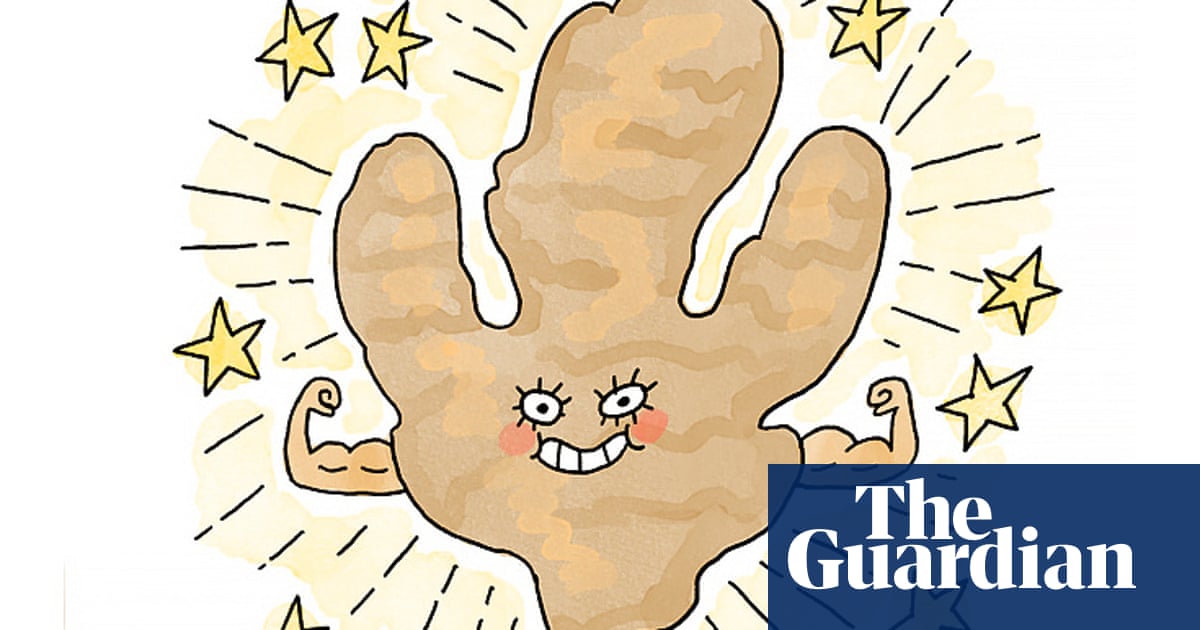Do you find yourself buying tiny bottles of fiery gloop at the first signs of a cold? You’re not alone. Ginger shots have become a trend in recent years, thanks to the perception that they’re good for immunity. But are they?
Dr Emily Leeming, a dietitian at King’s College London, says it’s unlikely they are a miracle cure. She says there has been only a small amount of research that shows that gingerol extracts, the active polyphenols in ginger, may help lower some markers of inflammation (an immune response), but the evidence is pretty weak.
“I could only find a limited number of studies with very small numbers of participants, published in low-quality journals, and they tend to use concentrated extracts of the active component ginger, rather than fresh juice like that in stores,” says Leeming. With the juices she wonders: “Is that active component in large enough quantities? Is it staying active? Is the juice being stored for a long time? Is it heat-treated?”
Sign up toInside Saturday
The only way to get a look behind the scenes of the Saturday magazine. Sign up to get the inside story from our top writers as well as all the must-read articles and columns, delivered to your inbox every weekend.
after newsletter promotion
She flags one small, medium-quality study, in particular, that focused on people in extreme circumstances: male endurance runners on a treadmill, who were given dried ginger in about the same quantity as you would get in a juice shot v placebos. “They did find that there were lower levels of post-exercise inflammation, but these findings might not be the same for inflammation in disease, for example, or for people who aren’t extreme athletes.”
Most importantly, with inflammation, Leeming says: “No one food is going to be a quick fix for your immune system.” Inflammation can only be lowered by having a consistent, healthy, balanced diet, exercising, getting a good night’s sleep and managing stress levels. A daily ginger shot might contribute to this slightly, but there are easier, cheaper ways to have a more proven impact on your immunity.
“If you want to take ginger shots, there’s no harm to it, and there might be a slight benefit,” she adds. “But maybe it’s better to spend that money on some wholefoods, like berries or cooked grains, that are going to help you keep your fibre up and feed your gut microbiome, which acts to support your immune system.”
